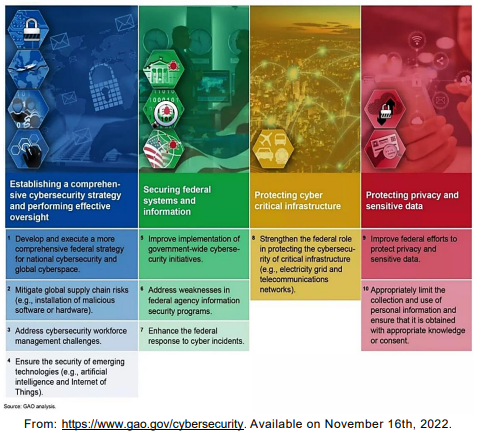Questões de Concurso
Sobre adjetivos | adjectives em inglês
Foram encontradas 467 questões
1. The underlined words in the sentence “This long, pointed stick was first used as a weapon…” is an example of active voice in the past tense.
2. The words in bold “they” and “their”, in the text, are being used as a personal pronoun and a possessive adjective, respectively.
3. The negative form of the following sentence: “Do exercises for your arms, legs, back, and neck…” is “Don’t exercise your arms, legs, back, and neck…”.
4. The word ‘properly’ in “it’s important to warm up properly before practicing the javelin.” is an adverb that means correctly or satisfactorily.
Choose the alternative which contains the correct sentences.
How trade can become a gateway to climate resilience
Most people don't think about climate change when they lift a café latte to their lips or nibble on a square of chocolate — but this could soon change.
Based on current trajectories, around a quarter of Brazil’s coffee farms and 37% of Indonesia’s are likely to be lost to climate change. Swathes of Ghana and Côte d’Ivoire — where most of the world’s chocolate is sourced — will become too hot to grow cocoa by 2050.
Climate-related droughts and deadly heatwaves across the world have coincided with severe storms, cyclones, hurricanes, and, of course, a pandemic. As a consequence of these shocks, millions of people have been left without homes, and a growing number of people now face starvation and a total collapse of livelihoods as growing and exporting staple crops becomes untenable.
We must immediately rethink the shape of our economies, agricultural systems and consumption patterns. Our priority is to manufacture climate resilience in global economies and societies — and we must do it quickly.
Trade can kickstart the emergence of climate-resilient economies, especially in the poorest countries. Trade has a multiplier effect on economies by driving production growth and fostering the expansion of export industries. By shifting focus to production and exports that increase climate resilience, there is potential to exponentially increase the land surface and trade processes prepared to withstand the climate crisis.
Adapted from: https://www.weforum.org/agenda/2022/07/trade-can-be-agateway-to-climate-resilience
Adding ethics to public finance
Evolutionary moral psychologists point the way to garnering broader support for fiscal policies
Policy decisions on taxation and public expenditures intrinsically reflect moral choices. How much of your hard-earned money is it fair for the state to collect through taxes? Should the rich pay more? Should the state provide basic public services such as education and health care for free to all citizens? And so on.
Economists and public finance practitioners have traditionally focused on economic efficiency. When considering distributional issues, they have generally steered clear of moral considerations, perhaps fearing these could be seen as subjective. However, recent work by evolutionary moral psychologists suggests that policies can be better designed and muster broader support if policymakers consider the full range of moral perspectives on public finance. A few pioneering empirical applications of this approach in the field of economics have shown promise.
For the most part, economists have customarily analyzed redistribution in a way that requires users to provide their own preferences with regard to inequality: Tell economists how much you care about inequality, and they can tell you how much redistribution is appropriate through the tax and benefit system. People (or families or households) have usually been considered as individuals, and the only relevant characteristics for these exercises have been their incomes, wealth, or spending potential.
There are two — understandable but not fully satisfactory — reasons for this approach. First, economists often wish to be viewed as objective social scientists. Second, most public finance scholars have been educated in a tradition steeped in values of societies that are WEIRD (Western, Educated, Industrialized, Rich, and Democratic). In this context, individuals are at the center of the analysis, and morality is fundamentally about the golden rule — treat other people the way that you would want them to treat you, regardless of who those people are. These are crucial but ultimately insufficient perspectives on how humans make moral choices.
Evolutionary moral psychologists during the past couple of decades have shown that, faced with a moral dilemma, humans decide quickly what seems right or wrong based on instinct and later justify their decision through more deliberate reasoning. Based on evidence presented by these researchers, our instincts in the moral domain evolved as a way of fostering cooperation within a group, to help ensure survival. This modern perspective harks back to two moral philosophers of the Scottish Enlightenment — David Hume and Adam Smith — who noted that sentiments are integral to people’s views on right and wrong. But most later philosophers in the Western tradition sought to base morality on reason alone.
Moral psychologists have recently shown that many people draw on moral perspectives that go well beyond the golden rule. Community, authority, divinity, purity, loyalty, and sanctity are important considerations not only in many non-Western countries, but also among politically influential segments of the population in advanced economies, as emphasized by proponents of moral foundations theory.
Regardless of whether one agrees with those broader moral perspectives, familiarity with them makes it easier to understand the underlying motivations for various groups’ positions in debates on public policies. Such understanding may help in the design of policies that can muster support from a wide range of groups with differing moral values.
Adapted from: https://www.imf.org/en/Publications/fandd/issues/2022/03/Addingethics-to-public-finance-Mauro
I. “We hated the concert, was totally ______” II. “The rotten eggs smell _______.” III. “Of the two routes, this is the ______.” IV. “He is a _____ driver.” V.
I. “He said she was _____ that night.” II. “She's cute as a princess and _____, like her mother.” III. “I’m not beautiful, but I can’t say I’m _______.” IV. “I’m loving this book, it’s so ______”

Refer to the above text to judge the following item.
“fewer” (ℓ.27) is the opposite of more.
Ten critical actions needed to address four major cybersecurity challenges:

1. noisy – ugly – terrible – friendly. 2. safe – calm – annoying – quiet. 3. curly – narrow – little – small. 4. street – across – between – in front of.
Escreva as palavras, na ordem correta:
Black – straight – long – hair.
Leia a frase e responda a questão subsequente.
He is quite awake.
Podemos classificar a palavra QUITE como um:
Leia a frase e responda a questão subsequente.
He is quite awake.
Podemos classificar a palavra AWAKE como um:
Analise as sentenças a seguir
1. Neymar Júnior is a ______ soccer player.
2. Lionel Messi is ______ than Neymar Jr.
3. Cristiano Ronaldo is ______ soccer player, and ______ sportsman in the world.
Assinale a alternativa que preencha correta e
respectivamente as lacunas.
Analise as sentenças a seguir.
1. Ferrari is ______ car. It costs US$ 17,7 million (expensive).
2. No, Bugatti La Voiture Noire Is ______ Ferrari. It costs US$ 18,7 million (expensive).
Assinale a alternativa que preencha correta e
respectivamente as lacunas.
Text V
Language Assessment and the new Literacy Studies
Some Final Remarks
Planning language assessment from a structuralist view of language has been a fairly easy task, since it aims at testing the correct use of grammar and lexical structures. This has been a very comfortable way to evaluate students’ performance in many regular schools or language institutes due to the stability of standardized answers. From the perspective of the new literacy studies, the comfort of teaching and assessing objective and homogeneous linguistic contents is replaced by a wider spectrum of language teaching and assessing possibilities, whose key elements turn to be difference and critique. Typical activities based on this new approach would enable students to make and negotiate meanings in a much more flexible way, corroborating the novel notion of unstable, dynamic, collaborative and distributed knowledge.
The inclusion of contents of such nature in language assessments may be, at a first glance, a very laborious process due to the fact we are simply not accustomed to that. Actually, we sometimes find ourselves deprived from the teaching skills necessary to apply a more critical teaching approach, a fact that is much the results of our positivist educational background.
Nonetheless, since the emergent digital epistemology will require subject more capable of designing and redesigning meaning critically towards a great deal of representational modes, we need to reconsider our teaching approaches, go further and seek theories that take such issues into account. By redefining the notions of language and knowledge, we, thus, assume that the new literacy studies from the last decades may offer very good insights to the field of foreign language teaching.
The re-conceptualization of language assessment according to the new literacies project presented in this paper does not intend to suggest prompt fixed answers, but it takes the risk of outlining possible activities, signaling certain changes regarding its characteristics and contents, as previously shared.
The increasing importance of the new literacy and multiliteracies studies and their fruitful theoretical insight for the rethinking of pedagogical issues invite us to review our foreign language teaching practices in a different perspective. By sharing some of our local findings, we attempt to corroborate the collaborative and distributed knowledge discussed by the literacies theory itself and hope to be contributing to the new educational demands of the emerging epistemological basis.
From: DUBOC, A.P.M. Language Assessment and the new Literacy Studies. Lenguaje
37 (1), 2009. pp. 159-178, p. 175-176.
Text I
Nurturing Multimodalism
[…]
New learning collaborations call on the teacher as learner, and the learner as teacher. The teacher is a lifelong learner; this is simply more apparent in the Information Age. In instances of best practice, collaborative learning partnerships are forged between and among teachers for strategic, bottom-up, in-house professional development. This allows teachers to share in reflective, on-going, contextualized learning, tailored to their collective knowledge. This sharing also includes the learner as teacher. ELT typically employs learner-centered activities: these can include learners sharing their knowledge of strategic digital literacies with others in the classrooms.
The digital universe, so threatening to adult notions of socially sanctioned literacies, is intuitive to children, who have been socialized into it, and for whom digital literacies are exploratory play. Adults may find new ways of communicating digitally to be quite baffling and confronting of our communicative expertise; children do not. Instant messaging systems, such as MSN, AOL, ICQ, for example, provide as natural a medium for communicating to them as telephones did for the baby-boomer generation. It is not fair for the teacher to treat Information and Communication Technologies as auxiliary communication with learners for whom it is mainstream and primary.
Learning spaces are important. Although teachers seldom have much individual say in the layout of teaching spaces, collaborative relationships may help to encourage integrated digitization, where computers are not segregated in laboratories but are interspersed throughout the school environment. In digitally infused curricula, postmodern literacies do not supplant but complement modern literacies, so that access to information is driven by purpose and content rather than by the media available.
Adapted from: LOTHERINGTON, H. From literacy to multiliteracies in ELT. In:
CUMMINS, J.; DAVISON, C. (Eds.) International Handbook of English Language
Teaching. New York: Springer, 2007, p. 820. Available at:
https://www.researchgate.net/publication/226802846_From_Literacy_to_Multiliter
acies_in_ELT
Choose the sentence in which the comparative form was correctly used.
The opposite of the superlative form THE BEST is:
According to the second paragraph, Finnish schools are very successful.
The opposite of the adjective SUCCESSFUL is: